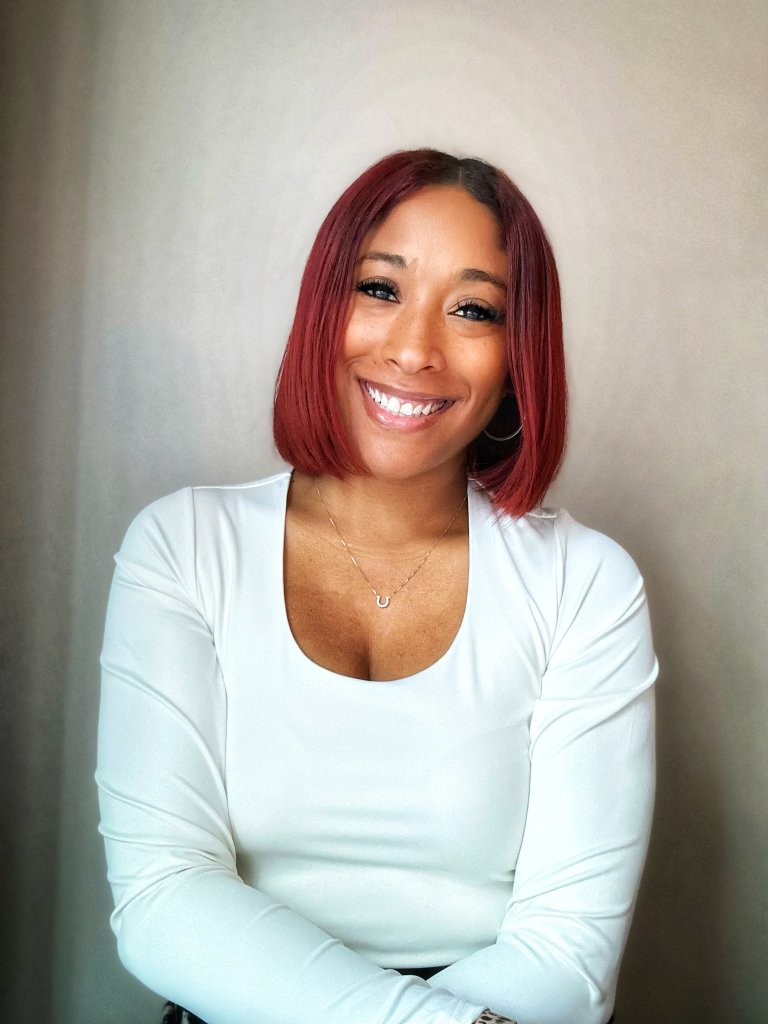How Principals Can Foster a Positive School Culture
A principal who focuses on being visible to students and honoring teachers’ work to support everyone in the building explains how she does it all.
Your content has been saved!
Go to My Saved Content.Busy school leaders often feel challenged to find time to connect deeply with their staff and with students and their families. Yet these leaders also know how important a supportive school culture is in fostering the success and well-being of everyone in the school community, and they seek to develop concrete strategies to make relationship-building a meaningful, manageable part of their everyday routine.
That’s an area of expertise for Dr. Ryan Daniel, principal of Fort Foote Elementary School in Fort Washington, Maryland. Her doctoral research focused on what motivates teachers to stay in the profession, and she discovered that the most important factor is the teacher-principal relationship—a critical component of school culture.
I spoke with Daniel about her approach to putting her research into practice—not just with teachers but with the whole school community—and how other leaders can create a culture of care as well.
BRITTANY COLLINS: Can you tell me how you define “school culture” and how you approach it in your work?
RYAN DANIEL: People should see the climate of a building, and they should feel the culture when they walk into it. I use the words family and team. Students should feel safe, seen, and valued by how we treat them. People should see and feel joy—it directly impacts teaching and learning. Though we may challenge students, we may push them and give them risks, they know we’re going to support them.
The biggest strategy for school leaders when it comes to enhancing school culture, and really building and sustaining it, is to be visible, to be in the work. I have a desk in the hallway. And when you come into our building, there are three to four teachers, including me, in the front lobby saying good morning, maybe playing rock-paper-scissors. About three years ago, my teachers and I created welcome mats—there’s one outside of everybody’s classroom door. There are words of affirmations around the building, paintings and graffiti and things to keep students encouraged.
Students should know who their principal is. As children, when we thought about the principal, we thought about them as the person we didn’t want to see. You had a relationship with your teachers. I want every student to be able to know their principal and for the principal to know them. One way I do so is lunch with the principal—we have 301 students in our school, and teachers choose two students from each homeroom to have lunch with me on Fridays.

COLLINS: Where’s the best place to start building a strong school culture?
DANIEL: At the two schools I’ve led, I came behind school leaders who’d been there for over 16 and 19 years. That’s difficult. I made sure that I got to know everybody on the boat—that they knew where we were going, why, and what was going to happen to their and everybody else’s role.
You have to honor the work that was done before you got there. Oftentimes, we come into leadership and want to fix everything, but we have to think about what perception that gives to those who’ve been there: that the work they did wasn’t good enough. I conducted an analysis, asking, “What are some things that you really love about our school that you want to continue? And what are some things that you want us to change? What are some things you want to stop completely?” That “start, stop, continue” protocol allowed me to find trends between staff members. I did individual meetings, and that gave me an opportunity to really hear what they valued.
I watched, for my first year, how things flowed. I didn’t make a lot of changes, because I can’t change something if I don’t know how it works. I needed to explain the why and get by-in and build relationships. We have to do what’s right by children and make sure that everybody on the team understands what we’re doing.
COLLINS: How do you do that?
DANIEL: Collaborative planning. I make sure that teacher time is protected and that planning is very intentional. We have weekly collaborative planning for 90 minutes and talk about students and data; do lesson plans together; and model lessons and practice before teachers do them in front of their class. Teachers observe each other. They plan and do activities together. Nobody feels alone.
We also use the Gallup CliftonStrengths assessment in leadership meetings. We take the test, and then we know everyone’s strengths. I get them to understand what it means when they’re operating at the top of their strength category and when they’re operating at the bottom of it—for example, being somebody that wins others over means I can be very excited and get others excited, too. But the bottom of that strength category could mean coming across as superficial, or vague, or naive. I’m very future-oriented, a big-picture person, but sometimes I can miss little details. As you’re building your leadership tool belt, get to know who you are as a leader so you can intentionally use that strength and know which people you need around you.
COLLINS: So the leader can play a key role in school culture. How can they stay motivated—how do you stay motivated?
DANIEL: I’ve distributed leadership and empowered teachers to serve in leadership capacities. They are my thought partners and accountability partners. I’ve put people around me so I have a parachute, so I don’t feel lonely.
Work can get really lonely when you have to make difficult decisions and not everybody’s onboard with them, or you have to make quick decisions and don’t have anyone to talk to. You have to trust yourself. If I look at myself as a principal now versus as a first-year principal, I second-guessed myself so much. But I’ve learned to trust my instincts, to have self-assurance and self-efficacy—to know that I’m making the right decision because I use evidence, or pull in other people or resources.
When you have to navigate challenging waters, trust your own leadership, and be open and willing to listen to other viewpoints. Ask for help when you need it. And don’t take things personally. If someone attacks your leadership decision, it’s not always personal—some people just don’t understand the why behind what you’re doing, so being able to articulate and explain it can help you share your vision to get buy-in. I write down exactly what I feel in the moment, and why, and what I need to do to push past it. I have to have a conversation with myself about intent versus impact. As a leader, you have to be very reflective and have difficult conversations.
COLLINS: You’ve touched on the social and emotional aspects of leadership. What role does SEL play in school culture?
DANIEL: Maslow before Bloom. We have to meet people’s hierarchy of needs. If somebody doesn’t feel safe somewhere, they’re not happy or they don’t want to be there, then they’re not going to give their best. The pandemic has shown us the impact of social-emotional learning, but not just for students—for staff, community members. Everyone has trauma.
I do check-ins with staff members and students. That’s why I try to be at the front door. I gauge how certain students are coming into the building. My mental health therapist is at the front door with us to help any student that is distraught. We try to be very proactive. In my schedule every day is a walk around the building; I say good morning to every teacher and make sure there’s a smiling face checking in.
If somebody is off, it’s going to affect all of us. If we see that someone is walking a little slower, is a little sad or quick to react, we ask if they’re OK, if there’s anything we could do to support them.
COLLINS: How else do you support teachers’ well-being?
DANIEL: I make deposits into my teachers. I try to make as many deposits as I can, so when I have to withdraw, I've poured enough into them and taught them how to pour into each other.
We started a compliment journal where we write notes and letters to each other. We have to stick together to do this work. It’s hard to have life crumbling around you and then have to get in front of a classroom with 25 first graders—you can’t have off days, you always have to be onstage, so checking on staff mental health is super important to me.
COLLINS: You’ve mentioned the importance of the “why.” What’s your why?
DANIEL: My why is to be the superhero for students—the champion and change agent to transform their educational experience. I want teachers and students to be encouraged and inspired.
To be able to know that you impacted a community, you made some changes and supported people—that keeps me going. A position doesn’t give you power; it’s really about how you treat people, how you make people feel.
This interview has been edited for brevity, clarity, and flow.
